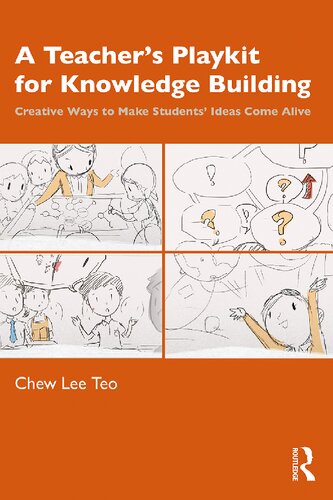

Most ebook files are in PDF format, so you can easily read them using various software such as Foxit Reader or directly on the Google Chrome browser.
Some ebook files are released by publishers in other formats such as .awz, .mobi, .epub, .fb2, etc. You may need to install specific software to read these formats on mobile/PC, such as Calibre.
Please read the tutorial at this link: https://ebookbell.com/faq
We offer FREE conversion to the popular formats you request; however, this may take some time. Therefore, right after payment, please email us, and we will try to provide the service as quickly as possible.
For some exceptional file formats or broken links (if any), please refrain from opening any disputes. Instead, email us first, and we will try to assist within a maximum of 6 hours.
EbookBell Team

4.4
42 reviewsDelving into the journey of teachers and students in the knowledge building classroom, Teo’s playkit offers practical approaches to making classrooms a place of knowledge creation.
Teo highlights the potential and possibility of idea-centric discourse and interactions in Singapore’s high-performing education system while offering a trilogue among researchers, teachers and students: the agents of a knowledge building environment in classrooms. Documenting case examples of knowledge building lessons in relation to the curriculum design and pedagogical decisions and moves, as well as the formative assessment, the book focuses on those 21st-century practices embedded within the knowledge building process. It comprises a series of teachers’ journeys in different subjects and grades, demonstrating the depth and breadth of projects that students are capable of pursuing in class when they are entrusted to work with their own ideas and questions. It also offers a collection of concrete tools and strategies for teachers to use to support knowledge building work. The different case examples support teachers in their design effort and will encourage the community of researchers and educators to continue to imagine the possibilities of pedagogical educational reform.
Written for practitioners, this playkit aims to engage the wider community of teachers to play with their own lesson ideas as they engage their students in knowledge creation.